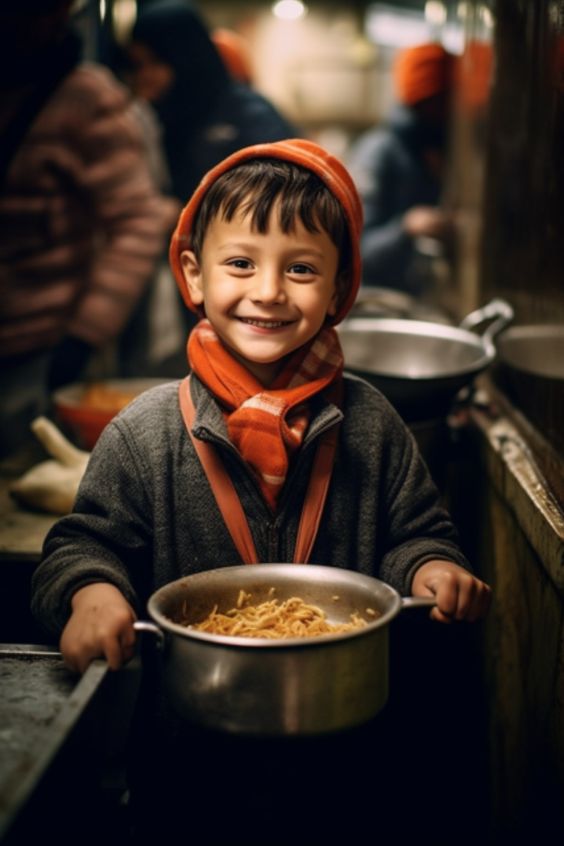At the end of February 2020, the first case of COVID-19 in Mexico was reported. A couple of weeks later, the closure of social activities, including work itself, was decreed. Due to this, many people in Guanajuato, as in every city in the country, were suddenly deprived of an economic income to meet the needs of their families, including the most basic one of all food.
In April 2020, three Solidarity Kitchens were installed: one in Cerro del Cuarto, another in Colonia Las Bateas, and one more in the Gerontological Center of Las Teresas. A couple of weeks later, the Civil Organization, Citizens Building the Good SC, opened one more kitchen in the facilities of the Rinconadas Children’s Stay, in the Mártires 22 de Abril neighborhood. This kitchen was fully funded by donations from the community, collected through the Collegiate Basilica of Our Lady of Guanajuato and the organization itself.
Later, another kitchen sponsored by the mining company “La Cantera,” in collaboration with the restaurant Neptunos Seafood, was added. All of them counted on the collaboration of the groups: Sumando Voluntades and Jóvenes que Trascienden, as well as the company Gas Butano. In total, there were three months of service, translated into 74,418 meals delivered. These meals consisted of two side dishes and a main course per day, sufficient for each family member.
In 2021, despite many people still facing economic difficulties stemming from the closure of work activities, the civil organization Citizens Building the Good SC, in collaboration with the Collegiate Basilica of Our Lady of Guanajuato, and under an institutional agreement with Municipal DIF Guanajuato, reopened a Solidarity Kitchen in the Gerontological Center of Embajadoras. Serving families in the city center and surrounding neighborhoods, more than 17,000 meals were served from April to December under the same scheme as in 2020. These nine months of service were sponsored by civil society donations and voluntary contributions from Kitchen users averaging $4.80 (four pesos and eighty cents) per full meal. More than 100 volunteers collaborated during this year and various companies were linked periodically.
On September 21, 2022, the first Solidarity Kitchen as a municipal government program began operations to provide permanent service to the most vulnerable population. Maintaining the same spirit as the first one inaugurated in 2020: to provide warm, freshly prepared, sufficient, and nutritious food to any family experiencing a pressing, emergent, or permanent economic situation. The advantage for users is that they do not need to be registered but can use the Kitchen whenever they require it.
In its first 8 working days of operation and as of September 30, 2022, 396 meals were served, adding to the 4,360 meals served from October 1, 2021, to December 17, 2022. An average of 300 to 500 meals per week is expected to be served in the next one to be installed in the Encino Conviviality Center.
On this occasion, and to ensure the service is permanent, a fee of $16.00 per meal has been authorized.

